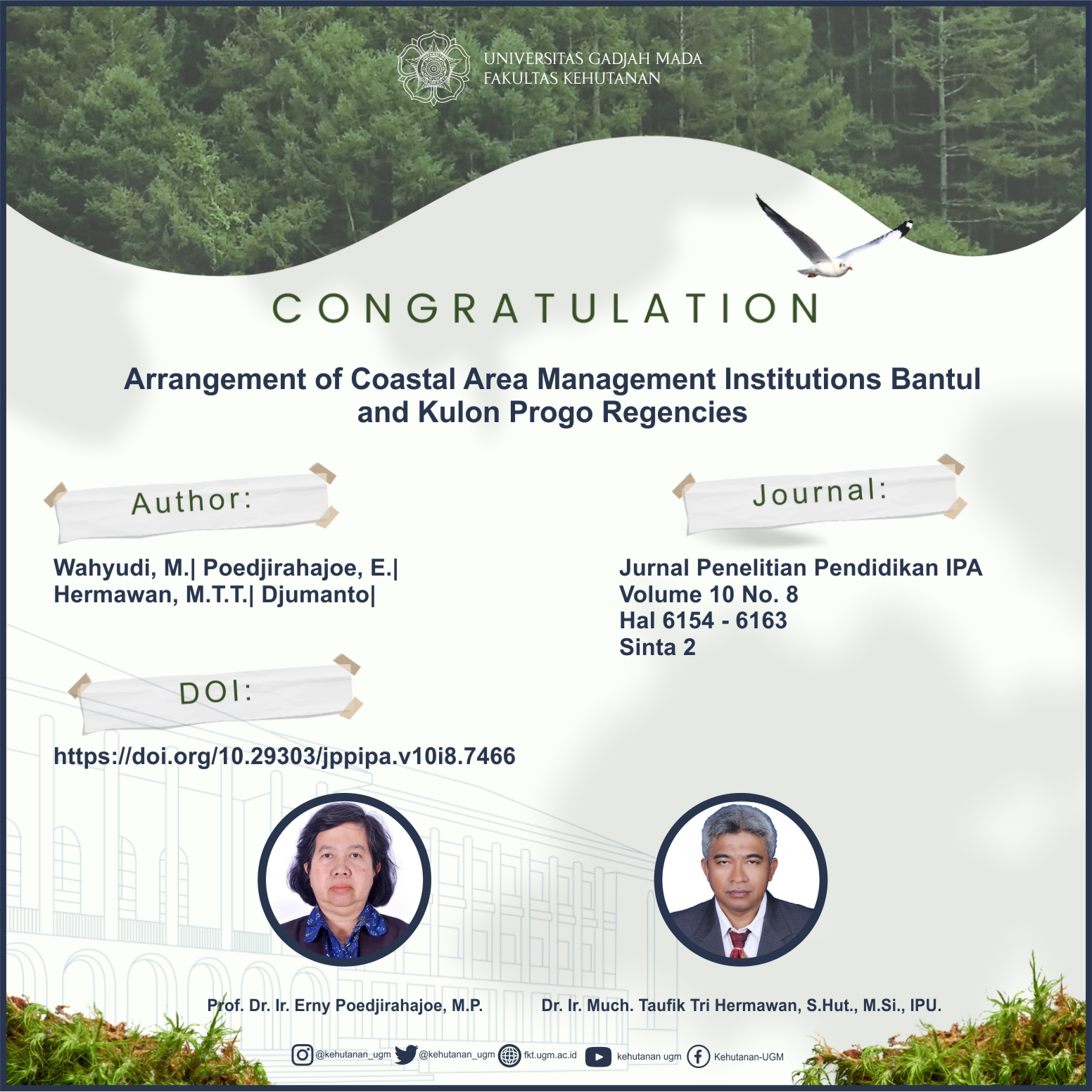
Abstract
The most dominant community activities are sand farming and tourism, while government intervention is in the form of infrastructure development, establishing conservation areas, protection, and tourism. The coastal areas of Bantul and Kulon Progo Regencies in DI Yogyakarta are naturally influenced by the supply of sand sedimentation from Mount Merapi, wind, and beach wave energy. However, this area has now become an area for agriculture, tourism, and other economic businesses, supported by various infrastructures. The condition shows that there is interpenetration of the ecological system by the social system and the development policy system. This research aims to organize coastal area management institutions as a result of interpenetration. The method used combines the social-ecological systems theory approach with social systems theory, which aims to get an overview of the dynamics of interpenetration. The research results show that interpenetration between the three systems occurs repeatedly and creates reciprocal symptoms. This research recommends that institutional governance be used as a middle way to reduce vulnerability, increase resilience, and strengthen sustainability. Institutional governance places the social system and development policy system as subjects, and the ecological system and the other two systems as objects.
SDGs
1. SDG 11: Sustainable Cities and Communities
2. SDG 13: Climate Action
3. SDG 14: Life Below Water
3. SDG 15: Life on Land
Link Dokumen:
Download
